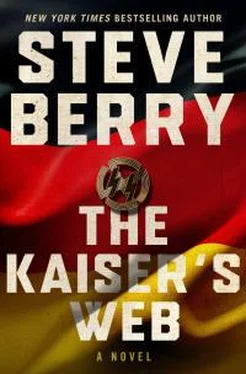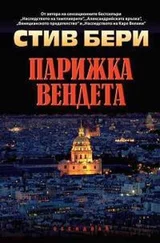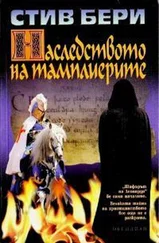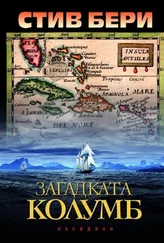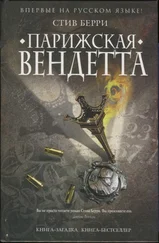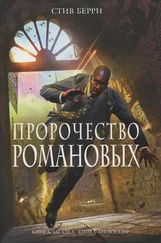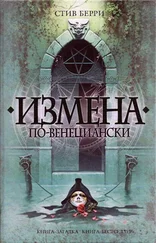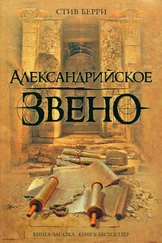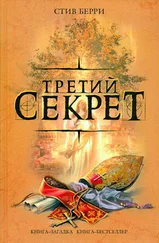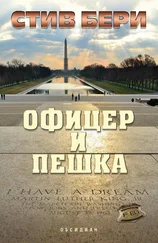The words were steady, neutral, detached. No remorse. No guilt.
“My father knew all this?”
“Marie, your father was a Nazi. You may choose to deny the fact, ignore the obvious, but your father loved Adolf Hitler.”
Her right hand swept up and slapped him across the face.
An almost unconscious reaction.
Kurt did not react to the assault.
He simply stepped back and rubbed his cheek. “Intense emotion. Violence. So you are human, after all.”
She resented his analysis. Beads of sweat dotted her forehead. She’d not thought herself capable, either. “My father was a good man. His political beliefs may have been unorthodox, but he was no Nazi murderer.”
Her nerves throbbed with excitement.
“So the fact he did not actually kill anyone makes him different? Do you really believe that? He agreed with everything Hitler advocated. He hated Jews and communists and Americans. He raised millions for the National Socialists and actively aided their cause. He willingly utilized slave labor. No, he did not actually kill anyone, he just made it easier for Hitler, Bormann, Himmler, and the rest to do it, all the while profiting from their effort.”
She was not going to listen to him anymore. She turned and headed for the door. Kurt lunged forward, grabbed her arm, and spun her around. “You are not going to walk away from me. Not this time.”
“Let go of me.” It was a weak command, especially with the clear menace in his eyes.
“I am sick and tired of you parading around in your self-righteous role as our savior. You are so quick to tell everyone else what is right. Are you capable of making the same judgments relative to yourself?”
“I have done nothing wrong.”
“How about your father? Can you judge him as harshly as you judge Theodor Pohl?”
“My father was harmless.”
But the words felt bitter on her tongue.
“Really? All those Jews who died in the camps might take issue with that. Men like your father put Nazis in charge, and then worked to keep them in power.”
“You are a despicable bastard. The sight of you makes me sick.”
He wrenched her closer to one of the mirrors. Her reflection stared back, visible in other mirrors across the room, moving at odd angles. “Look at your face, Marie. The people will tolerate much from their leaders. They’ll forgive theft, incompetence, sexual indiscretions. But there are two things they will not forgive. Arrogance and hypocrisy. You, my dear, will be perceived as suffering from both. No one will tolerate your sermons when your father was the guiltiest of all. It is not me, Marie, but you who will be the one to explain.”
She freed herself from his grip and whirled around to face him. “Whatever you think is right, Kurt. Do it. You and Pohl both. Do it. I’m ready.”
“You might be ready, Marie. But is your political party? Your supporters? You will cost them all.”
She let the bait fly past her, resisting the urge to square off with him once again. Nothing would be gained.
So she stormed from the room.
CHAPTER SIXTY-SEVEN
AUSTRIAN ALPS
5:00 P.M.
Cotton slowed the Mercedes as he and Schüb rounded a sharp bend. The highway traced gentle diminishing arcs across the upper meadowlands between Alpine parapets, descending as rapidly as it had climbed a few minutes earlier, on its way down into a broad valley cut between steep slopes. Groves of poplar and blue fir embroidered a path up the jagged slopes, all without the usual ski chutes, setting a scene of both solitude and solace. The upper peaks, hooded by sullen clouds, were enameled with snow, and he realized it would be only a few more months before the icing spread down into the valley.
A light rain smeared the windshield and he flipped on the wipers. Schüb sat in the passenger seat and pointed off to the east, into the valley, where through the mist a farmhouse came into view.
Schüb had explained on the trip north from Switzerland that the house was built just after World War I by a German Jew who’d been enamored with the projecting roofs, stone and mortar, and walls of wood and shingle found in Black Forest farms. So he’d erected a replica in the Austrian Alps. The Nazis eventually seized the land and occupied the premises throughout the war. When it was finally returned to the family in the early 1950s, they could not afford the upkeep so the estate was sold. Bormann recalled the locale from the war and thought it perfect, so he authorized the purchase and vested title in one of Schüb’s many aliases.
“The Austrians ask few questions. Like the Swiss. They are quite easy to deal with,” Schüb said.
He followed the road as it flattened into the valley, turning off onto a rocky lane that wound through dense trees, the day’s shadows lengthening. They passed through a couple of Disney-cute Tyrolean villages, each a cluster of snowy plaster and ancient timbers. Finally their destination drew closer, and he saw that all of the house’s shutters were closed. Fallen leaves and limbs dotted the space between the house and stands of fir and pine.
Nothing about the place signaled occupancy.
“It has been a while since anyone was here,” Schüb said. “I have a caretaker who lives in Salzburg. He comes occasionally to check on things.”
They stepped out of the car into the rain.
Schüb led the way to the front door.
The building seemed about three thousand square feet spread over three floors. There was electricity, for which he was grateful, since the rain and lateness of the day cast everything in a murky gloom. Schüb switched on the lights to reveal rooms of warm, traditional furniture.
“I see the caretaker has made sure everything stays clean,” Schüb said.
“You came here a lot?”
“Four to five times a year. This is where Theodor and I would meet. We spent many hours here together.”
He followed Schüb upstairs.
Under a high-pitched roof, along with chairs and a small sofa covered in a quaint embroidery, were kilim rugs, an Indian sitar, and what appeared to be ostrich eggs arranged in a woven basket.
“Most of these things I brought from Africa. Gifts from Bormann to his son. They made for good decoration.” Schüb stepped to the window and gazed out into a fading, wet afternoon. “We would many times sit here. I would tell Theodor of Bormann, and he would read the latest notebook. I actually liked the boy in his younger days. He was handsome and strong. A lot like his mother. She was always there, in his eyes and mouth.” Schüb turned from the window. “Do you know of the heimliche Kaiser ?”
“The secret emperor?” He shook his head. “I don’t know what that is.”
He listened as Schüb spoke of 1189 and Barbarossa, one of the early Holy Roman Emperors, who created a German imperial grandeur that challenged all of Christendom. Unfortunately, his dream went unfulfilled as he died on the way to the Crusades. Ever since, legend had proclaimed that Barbarossa still breathed, asleep inside the womb of a mountain, waiting to be woken to wrench his homeland from defeat and lead Germany again to glory.
“It was no accident that Hitler named the Russian invasion Operation Barbarossa,” Schüb said. “He was quite familiar with the heimliche Kaiser. Like the Nazis, he used legends to raise hopes. It is so sad how we Germans lose sight of political reality in the face of wistful dreams and romantic notions.”
He’d read that same conclusion from many a historian.
“Bormann played off this fallacy,” Schüb said. “He would write to Theodor about how to use folk-power. It was supposedly the task of the heimliche Kaiser to remove all vestiges of Western civilization and bring health to the German people. Hitler tried to do that and failed. He was the false heimliche Kaiser, Bormann would say.” Schüb shook his head. “Myths have always been intoxicating for Germans. We never seemed to realize that they are merely invitations to doom.”
Читать дальше
